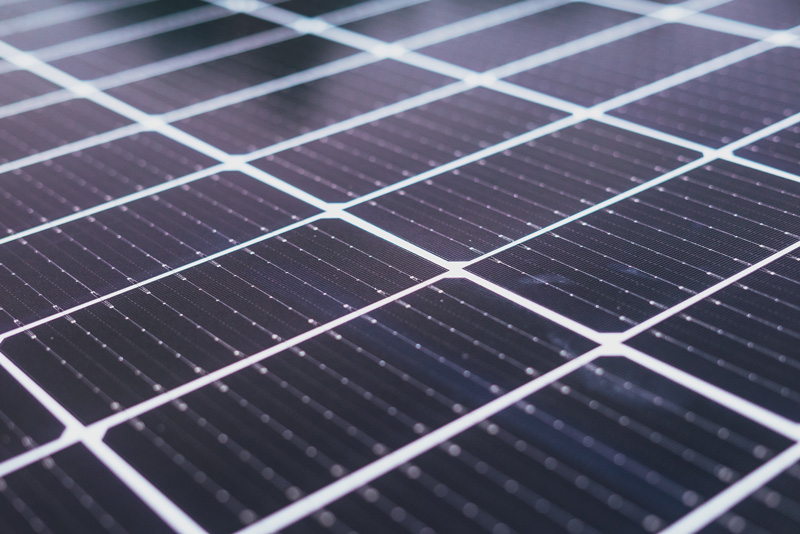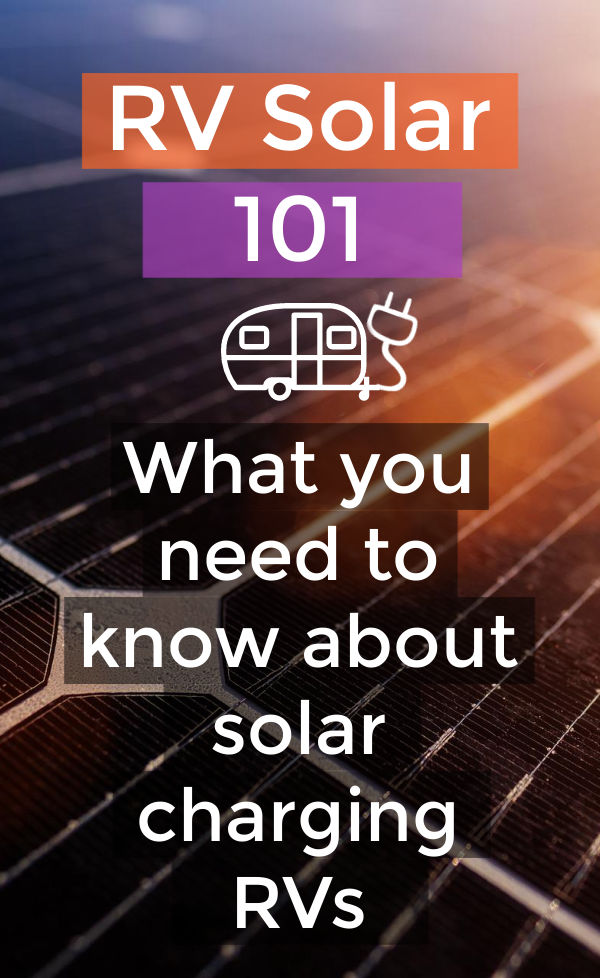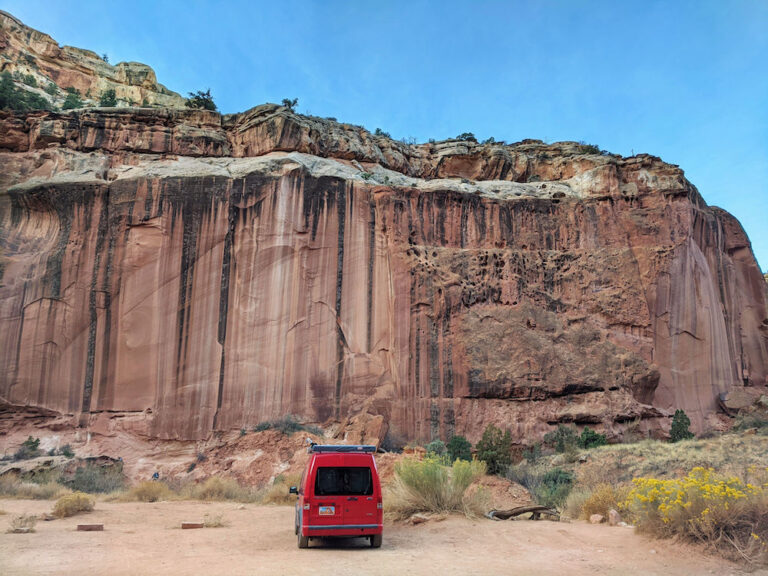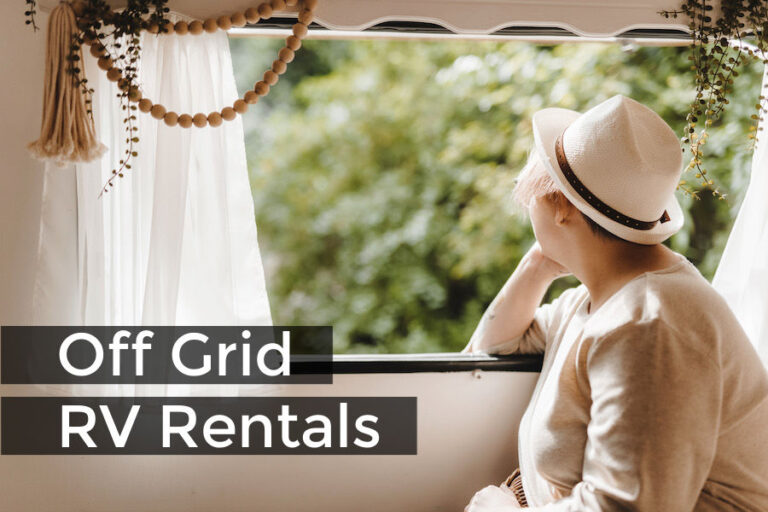How Much Solar Power Do I Need For My RV?

With the steady rise in popularity of RV camping, it’s no surprise that RV parks or campsites with power sources are becoming crowded. Other alternatives like noisy generators have their own drawbacks like fumes and regulations on where you can use them.
The pandemic has also pushed more campers to venture off-grid for longer periods of time. But at the same time, RV owners are bringing more appliances and devices on their trips, creating a larger demand on the amount of energy needed from their off-grid electrical systems.
With this in mind, many have started looking into adding a solar system to their RV.
Having a solar panel system gives you the freedom to set up camp anywhere you want while not worrying about having enough power.
The question is how much solar power do I need for my RV? Keep reading to find out how much solar power you need depending on your setup.
What you need to know about solar charging RVs
Amps – Amps is a measurement of the amount of electrical current.
Volts – Volts measure the strength of an electrical current as it runs from one point to another through a wire.
Watts – Watts measure power consumption or the rate in which power is used.
Amp-Hours – Amp-Hours (Ah) indicate the power capacity of batteries or the number of amps a battery gives in an hour.
Watt-Hours – Watt-Hours (Wh) indicate the amount of watts used over time. A battery that has 5 Wh can power a 1 Watt device for about 5 hours; also a 500 Wh battery can power a 100 Watt device for about 5 hours.
Batteries – For RV batteries, you need deep cycle batteries (Group 25, 27, etc.) made of either lead-acid batteries or lithium-ion batteries. The difference between the two is that lithium batteries are more expensive because you can use more of the Ah rating of a battery, meaning they can be fully discharged.
Power Inverter – A power inverter converts the power of your DC batteries to AC power. Depending on the amount of power your large appliances use, you might need to upgrade your built-in power inverter to handle bigger power outputs.
Battery Monitoring System – A battery monitor system indicates how much battery remains stored in your RV battery bank at any given time.
Solar Charge Controller – A solar charge controller regulates the voltage and current coming from the solar panels to the battery.
How many solar panels do I need for my RV?
The number of solar panels needed depends on the storage capacity of your batteries and amount of power you use each day. Here are some rules of thumb:
- A 100 watt solar panel can produce 30 Amp Hours of battery charge.
- The 100 watt solar panel generates an average of 350 Watt Hours of power each day.
- One 100 Amp Hour 12 volt battery has about 1200 Watt Hours of storage capacity.
- Most RV solar panels range from 150 watts to 200 watts.
At a minimum, 300 watts of solar panels and a 12 volt battery can be enough to run the basic RV accessories and electronics during the day. This is a good minimum solar capacity for off-grid stays or boondocking.
However, if you want to power a heater overnight and run a microwave, coffeemaker, and blender, then it’s a good idea to increase your battery bank and solar set up. A suggested minimum is 600 watts of solar along with either four 6-volt golf cart batteries or two 100-Ah lithium batteries.
To go all out and be able to adapt with cloudy weather, increase to 1200 watts (about eight RV solar panels).
Running air conditioning consumes charge quickly, so it’s usually not practical to power AC units from solar because you would need a huge battery.
To get the most accurate estimate of how many solar panels you need for your van or RV, add up the Amp Hours (Ah) your batteries can hold. This limits how much energy from the solar panels you’ll be able to store.
Then calculate the wattage requirements of your accessories, electronics, and appliances multiplied by the number of hours you’ll need them each day. This helps you know how quickly you’ll deplete the battery before needing more sun the next day.
RV Roof Panels vs. Portable Panels
RV roof panels are secured to the roof of your RV. One of their biggest pros is that they are always charging your batteries any time the sun is up, even as you’re traveling.
Roof panels are also convenient since you don’t have to manually set them up or find storage for them while not in use.
One disadvantage is that RV roof solar panels won’t always deliver its full capacity watts of power because they can’t be tilted at the ideal 90 degree angle, unless you buy equipment specifically for tilting.
Portable solar panels are great for their flexibility. They are available in a variety of forms and sizes, meaning they can be moved to maximize their exposure to the sun.
It’s also a great way to start exploring solar energy by getting an entry-level RV solar kit before committing to larger systems.
The downside is that you have to manually set them up throughout the day and run the risk of falling over during windy days.
Installing solar panels on RV
For an idea of what this can look like, check out our friends, the RV Geeks’ brief overview of their RV solar panels installation.
With the right tools and equipment, you can install solar panels yourself. There are free tutorials on websites and Youtube.
The steps include:
– Mounting the solar panels
– Installing a charge controller inside the RV
– Wiring the outside solar panels to the indoor charge controller with a fuse or circuit breaker
– Wiring the charge controller to the battery bank
– Carefully plug in solar panels to the charge controller
– If using 120-volt AC appliances, mount and wire an inverter
How much do solar panels cost?
Since there’s different types of solar panels, the price range will also depend on what you get. A complete RV solar system can range from $600 for a small-scale setup to over $2000 for big installations.
A complete system includes not only the solar panels but charge controllers, battery storage, and inverters.
Portable solar panels can save you the costs of installation but in terms of price per watts, portable solar panels can be pricier. Expect to pay a range from $300 to $800 for the standard 100 watts to 200 watts.
How much do solar panels weigh?
RV solar panels weigh considerably less than solar panels for residential use. RV solar panels rated anywhere from 100 to 200 watts are commonly under 20 lbs. The 100 watts solar panels of popular solar panel brands like Renogy and HQST weigh around 15 lbs.
Solar power technology has now become more accessible and many campers are making the switch. With solar power, off-grid camping and powering more personal devices for a long time is now possible.
As you ask yourself, “how much solar do I need for my RV?” (or van or trailer) always consider your RV requirements and your camping style or needs.
Like this post? Pin it for later or share with a friend!





